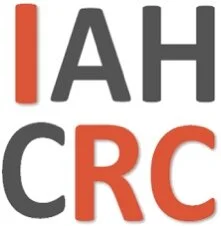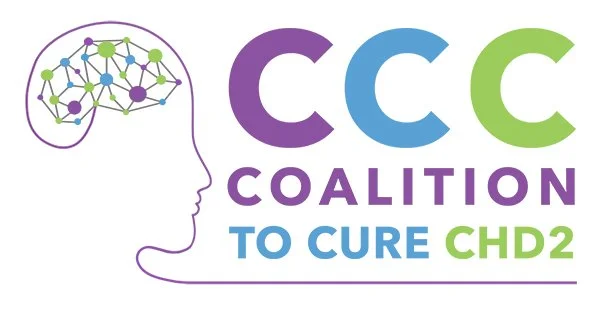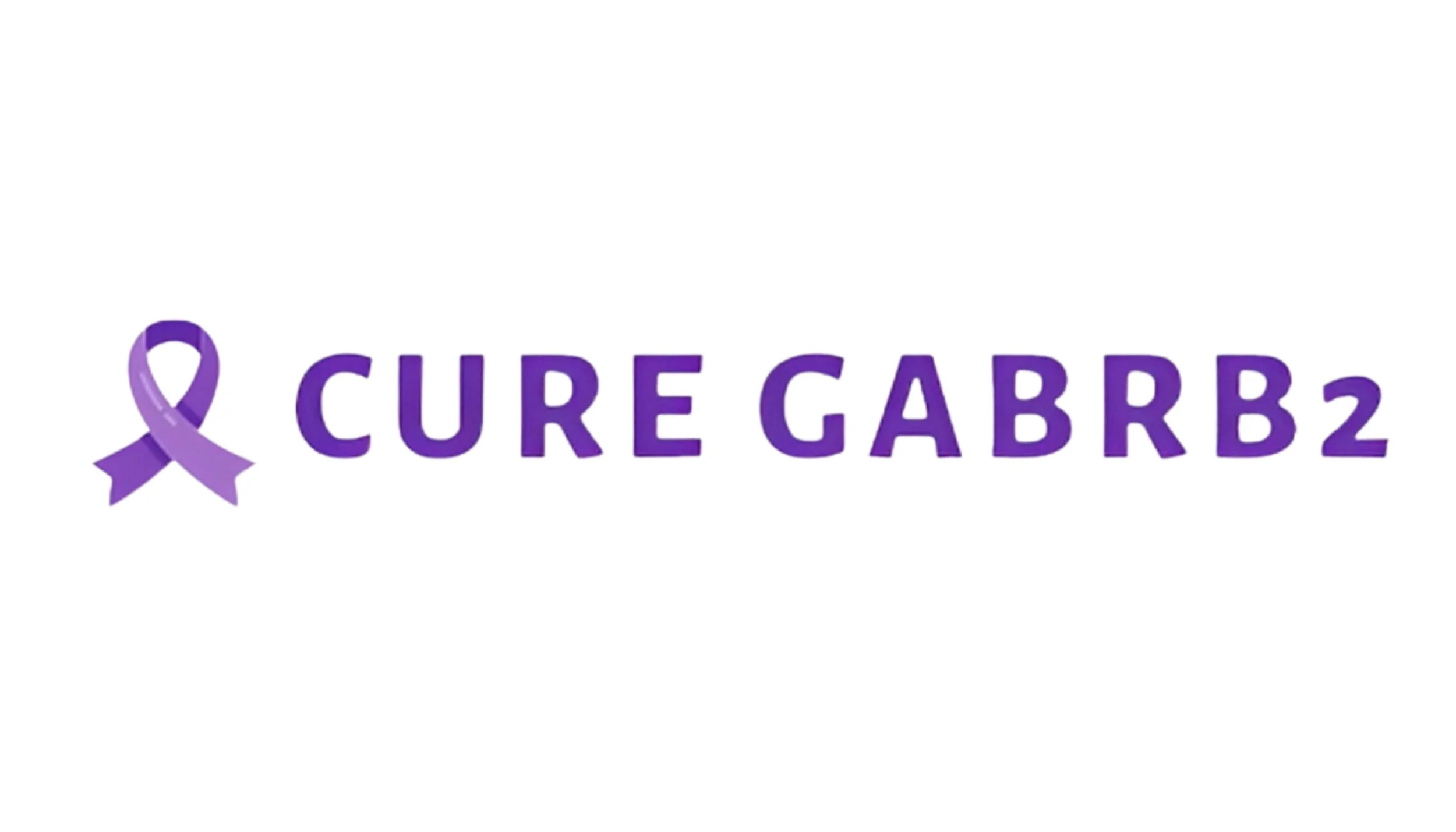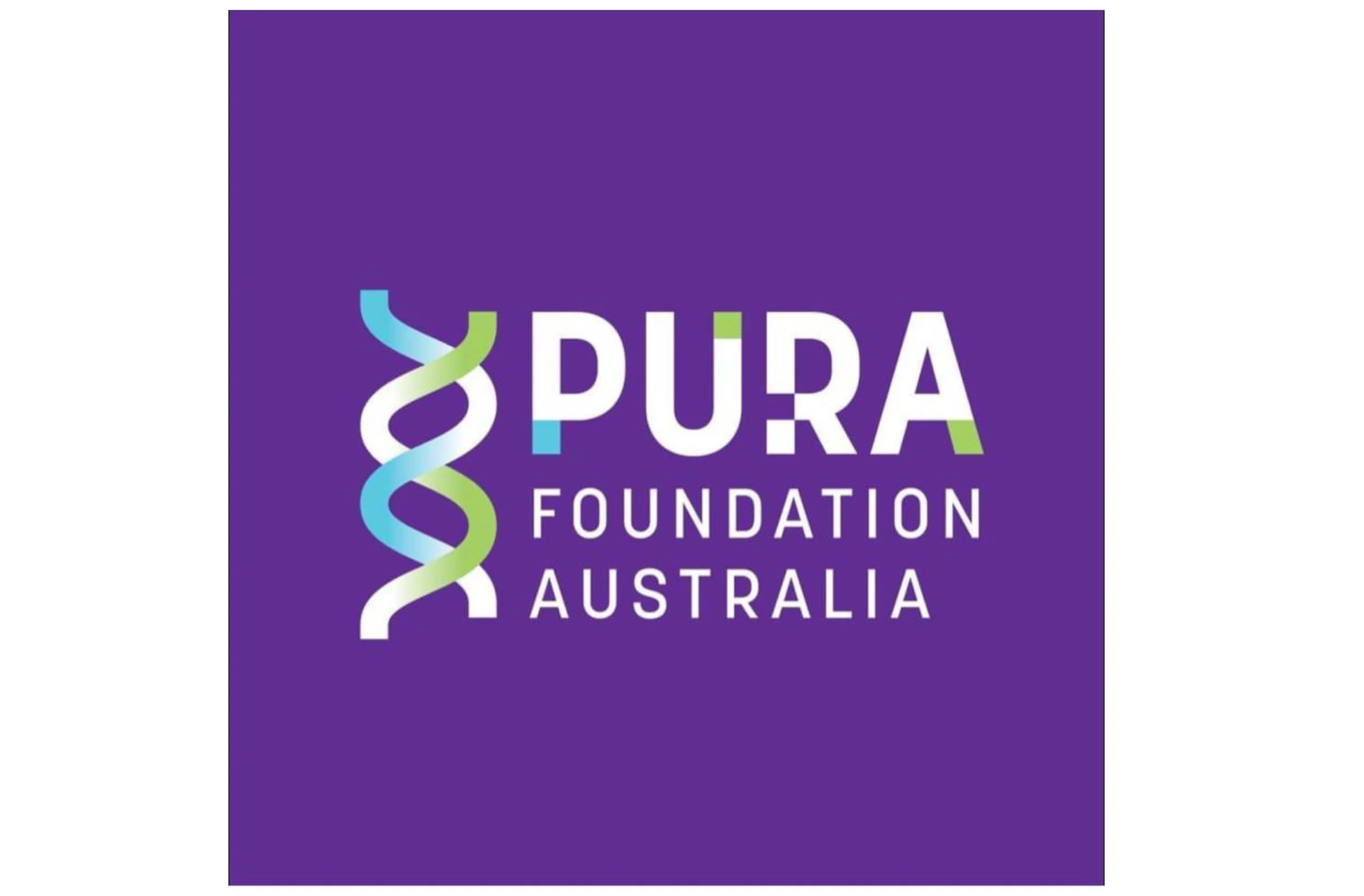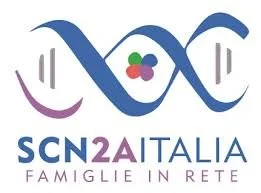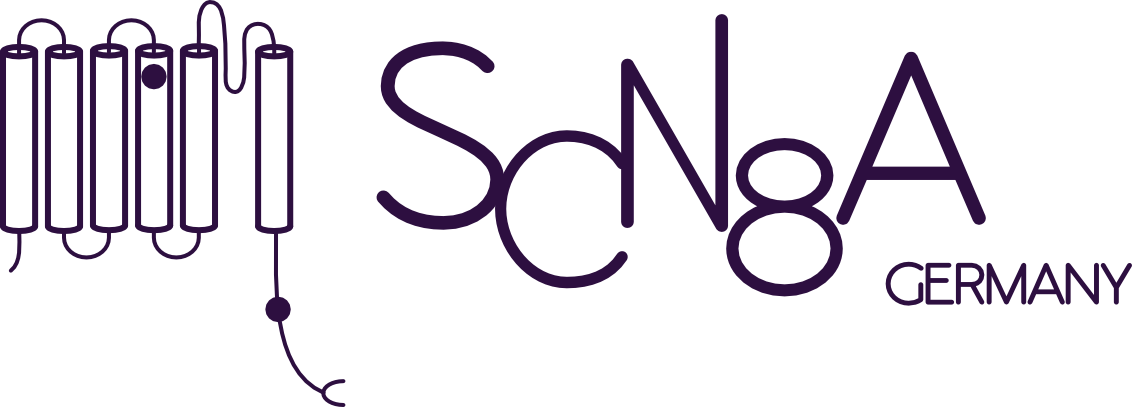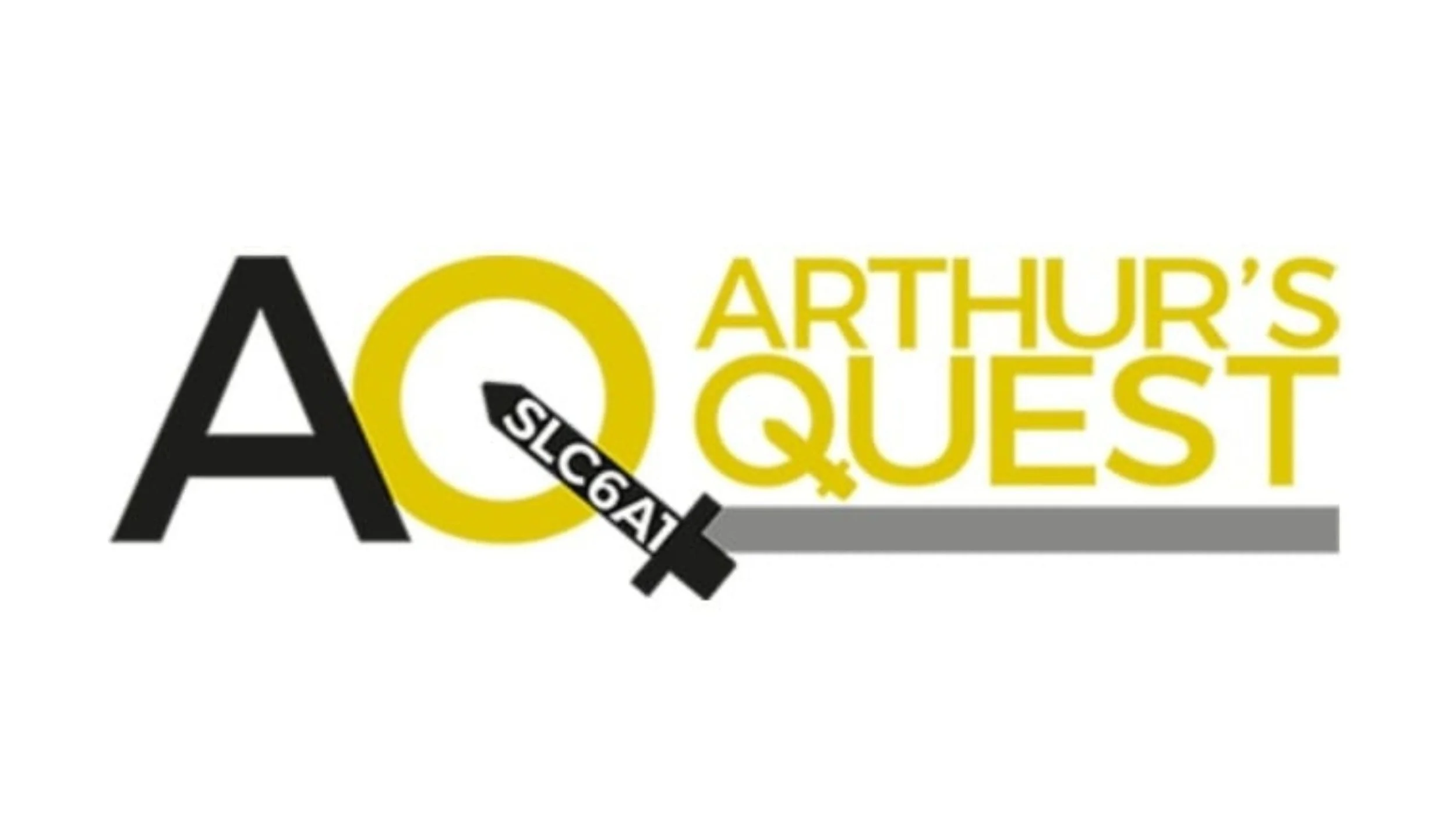Rare epilepsy organisations
There are so many rare epilepsies out there! Scroll down to find the one you might be looking for.
Plus, check out our rare epilepsy glossary for descriptions!
International
EpiCARE brings together 28 highly specialised health centres in 13 European countries with expertise in rare and complex epilepsies. EpiCARE offers a coordinated approach for epilepsy diagnostics and treatment by utilising e-tools and cross-country e-consultancy, thus providing patients with the best expertise available.
Website: epi-care.eu
Twitter: EpiCARE_ERN
Genetic Epilepsy Team Australia’s mission is to help world-leading Australian researchers cure the genetic epilepsies. As part of this mission GETA aims to:
Raise awareness of the many forms of genetic epilepsy
Promote Australia’s world-leading research position in the discovery and treatment of the genetic epilepsies
Raise funds for research into cures and therapies for the genetic epilepsies
Genetic Epilepsy Team Australia works alongside leading health researchers and with families and children with genetic epilepsy towards their mission: GETA: GET A Team, GET A Target, GET A Cure
Website: geneticepilepsyteam.com.au
Twitter: geneticepilepsy
See our guest-blog by GETA Co-Founder Kris Pierce here
Rare Epilepsy Network (REN) was born in 2013 with ten rare epilepsy organisations fueled by a Patient-Centered Outcomes Research Institute (PCORI) grant, managed by the Epilepsy Foundation (EF), and singularly focused on a project to build a patient-centered registry.
By 2019, REN had grown to 32 organisations, launched a first-of-its-kind rare epilepsy registry, including 41 diseases, and onboarded 1,500 patients. When the PCORI grant came to a close in Spring 2019, REN members determined there was value in continuing the network, expanding from a single focused project to multiple projects, and improving transparency about REN’s mission, composition, and terms of engagement. As a result, a small transition workgroup convened to envision the future of REN.
In early 2020, REN began anew and is growing with speed. REN is a volunteer network that welcomes all rare epilepsy organisations to come together around research efforts where our collective efforts will improve the lives lived of our individual constituents. REN includes rare epilepsy organisations and broad epilepsy stakeholders committed to this common mission. Meet our Members and Partners here.
Website: rareepilepsynetwork.org
Twitter: RareEpilepsy
Specific/local
(In alphabetical order of disease)
Alternating Hemiplegia of Childhood (AHC)
AESHA is the Spanish Association of Alternating Hemiplegia of Childhood (AHC), a non-profit organisation currently formed of 21 Spanish families and 1 Portuguese family with a relative diagnosed with AHC. AESHA’s main objectives are to support AHC families and encourage the exchange of experiences, raise awareness of AHC, organise fundraising activities to support international research projects, and promote the exchange of information and collaboration between doctors and researchers.
Please reach out to them if you are the parent, relative, or friend of someone diagnosed with AHC. They will be happy to help you understand the disease a little better, provide information about our experience, explain the possibilities of treatments that currently exist, and show you the different research projects that are currently underway.
Website: aesha.org
Twitter: aesha_ahcspain
Alternating Hemiplegia of Childhood UK supports families who have a child or loved one that have been diagnosed with AHC. For those who feel alone or/and are not sure what to do or where to go, they are here to help and support them.
AHC UK plays a key role in the creation of clinical reference centres, the development of Clinical Registries and Biobanks, working with the IAHCRC (International AHC Research Consortium - see below) to have scientists, clinicians, and families learn together.
Website: ahcuk.org
Twitter: SupportAHCUK
The IAHCRC Consortium is a network of Clinical Centers, Research Laboratories and Scientific Organisations in Europe, North America, Asia and Australia, with active involvement in the research and in the care for the ATP1A3 rare diseases. They also work in close collaboration with the patient associations and with external scientific and mixed organisations. The IAHCRC Consortium aims to accelerate clinical and basic science research in the field of AHC and of all the ATP1A3 related diseases and to improve the quality of life of the affected patients and of their families.
Website: iahcrc.net
Facebook: iahcrc
See article by Rosaria Vavassori who's son has AHC here!
Angelman Syndrome
AngelmanUK is a volunteer-led registered charity based in the UK. We help support people with AS and their families as well as carers of people with Angelman Syndrome. We also provide support to professionals working with the person with AS, who may have met very few or no other individuals with Angelman Syndrome in their professional career. We aim to educate and raise awareness of this rare neurological condition and the issues that surround it and also assist many organisations and individuals in carrying out research into Angelman Syndrome and its many related areas.
Website: angelmanuk.org
Twitter: angelmanuk
CACNA1A
The CACNA1A Foundation is a nonprofit dedicated to a brighter future for those with CACNA1A variants. They are there to raise both awareness of the CACNA1A genetic variants and funds to support research and treatment options in order to make a difference in the lives of those affected by CACNA1A
Website: cacna1a.org
Twitter: cacna1a
CACNA1E International is a group of passionate parents from all over the world coming together to fund life-changing research on the rare genetic epilepsy: CACNA1E. They plan to bring families, doctors and the world's best scientists together in a collaborative effort. They support this research not only with financial resources but also with presence and public relations work. “Our kids need a targeted treatment and cure. Be part of our mission, show solidarity, donate and help us become better known worldwide!
Website: cacna1e.org
Facebook: CACNA1e Support Group
CDKL5
CDKL5 DEUTSCHLAND e.V. offers support to all families affected by CDKL5 in Germany; connecting them via social media where they provide a platform to share experiences regarding therapies and aids. They do fundraisers to provide annual family conferences, annual skiing weekends, wellness weekends for carers, and are also in close contact with international patient groups. Their most important message to all affected is: “You are not alone!”
Website: cdkl5-verein.de
Twitter: Cdkl5VereinDACH
Cure CDKL5 UK promotes relief, care and services to promote health, for persons suffering from and affected by CDKL5. They fund research into clinical trials and treatments for symptoms (such as epilepsy), and into raising public awareness and understanding of the condition.
Website: curecdkl5.org
Twitter: cdkl5uk
See article by Carol-Anne Partridge who's daughter has CDKL5 here!
The International Foundation for CDKL5 Research is the leader in CDKL5 patient education in the English-speaking world. Their free guides give families living with CDKL5 Deficiency Disorder the information and resources they need to help their affected loved one. They also partner with CDKL5 organisations around the world to adapt their guides to the educational and medical processes of their own countries.
CHAMP1
The CHAMP1 Research Foundation is an organisation created for parents of children with developmental delay, hypotonia, cerebral palsy, autism, and epilepsy among many other diagnoses a result of a change in the CHAMP1 gene. Their mission is to improve the lives of those affected by CHAMP1 through clinical research, effective treatments, public awareness, early detection, family support, and patient advocacy.
Website: champ1foundation.org
Twitter: champ1research
March is CHAMP1 Awareness month! Check out the video about JJ here!
CHD2
Coalition to Cure CHD2 is a 100% volunteer-run organisation fueled by our desire to help our children & others with CHD2-related disorders. CHD2-related neurodevelopmental disorders are a group of seizure disorders that typically present in the first five years of life and may be characterised by refractory or drug-resistant epilepsy, developmental delays, and photosensitivity epilepsy caused by flashing lights. Other symptoms may include intellectual disability, autism spectrum disorders, neuropsychiatric conditions, low muscle tone, and challenging behaviours.
Website: curechd2.org
Twitter: curechd2
CRELD1
The CRELD1 Warriors organisation is a community of families affected by the rare epilepsy CRELD1 (Cysteine Rich With EGF Like Domains 1). CRELD1 is a Protein Coding gene. Sequence changes in the CRELD1 gene are typically associated with the cause of atrioventricular septal defect (AVSD). Diseases associated with CRELD1 include Atrioventricular Septal Defect 2 and Partial Atrioventricular Septal Defect Without Ventricular Hypoplasia.
New types of sequence changes in different parts of the CRELD1 gene can cause an extremely rare genetic disorder, when both copies of the gene don’t function properly (autosomal recessive inheritance). This manifests as a wide range of neurodevelopmental disorders, ranging from mild movement disorders to severe developmental and cognitive delays. This newly identified CRELD1-related disorder is also characterised by multiple, frequent, treatment resistant epileptic seizures, adrenal insufficiency, severe bilateral neural hearing loss, immature eye development, acute respiratory distress and submucosal cleft palate to name a few.
Website: creld1.com
Facebook: groups/2368320773203235
DHDDS
Cure DHDDS is a charity set up to raise awareness, support families and help drive research into the ultra-rare DHDDS gene mutations. An ultra-rare genetic disease, DHDDS (Dehydrodolichyl Diphosphate Synthase) is a protein coding gene. Most patients (over 85%) experience the following to varying degrees: Intellectual disability (from mild to severe), tremors/myoclonus, epilepsy (seizures varying from focal to generalised, including absence, myoclonic, atonic, tonic, and tonic-clonic ) and ataxia. Other, less common symptoms reported (less than 30%) include: movement disorders such as chorea, parkinsonism, pyramidal signs, dystonia, and dysarthria; autistic traits such as stereotypie; behavioral disorders inc. hyperactivity/ADHD, and psychiatric conditions including anxiety, OCD, and psychosis.
Website: curedhdds.org
Facebook: groups/5098109866933988
Dravet Syndrome
Dravet Italia ONLUS’ aim is to improve the quality of life of children suffering from the serious form of epilepsy: Dravet syndrome. Through the collaboration of experienced doctors and parents, they have gained an improved understanding of the syndrome which has led to improvements in treatments. Their aim is to support research, so that their hopes of for their children become a reality.
Website: dravet-italia.org
Twitter: DravetItalia
Dravet Syndrome Croatia was created in order to create conditions for a better quality of life for people suffering from Dravet syndrome through education of parents and doctors, medical research, and improvement of the health and social care system.
Website: dravet-sindrom-hrvatska.hr
Facebook: Dravet-sindrom-Hrvatska
Dravet Syndrome UK is an independent UK charity dedicated to improving the lives of those affected by Dravet Syndrome through support, education, and medical research. Since the charity was founded in 2008, the membership has risen from just thirty families to almost four hundred and fifty.
Website: dravet.org.uk
Twitter: DravetUK
Fundación Síndrome de Dravet’s objective is to promote, encourage and connect the main world research centres on Dravet Syndrome and other related diseases. Is it based on the principle of a collaborative model uniting professionals, patients, researchers, doctors, volunteers and sponsors in the search for an effective therapy. The main objective is to eliminate the barriers that prevent research on Dravet Syndrome from progressing, as well as finding effective drugs and treatments that allow people to eliminate, mitigate and even cure the disease.
Website: dravetfoundation.eu
Twitter: FundacionDravet
See article by José Ángel Aibar, President of Fundación Síndrome de Dravet here!
GABA-A
The GABA-A Alliance both forms a group of families affected by the rare epilepsy and works with researchers to find some answers and improved care! GABA-A receptor disorders are caused by variants in one or more of the GABA-A genes. There are various symptoms of a GABA-A disorder. These symptoms are not experienced by all individuals. These include Developmental delay, Epilepsy (including Dravet Syndrome, Lennox-Gastaut Syndrome, and Treatment Resistant Epilepsy, I Intellectual disability (mild to severe), Hypotonia, Dyspraxia, Movement disorders (including dystonia, apraxia, choreoathetosis), and Cortical-Visual Impairment.
Website: gabaa.org
Twitter: gaba_alliance
The Cure GABA A Variants organisation has been focusing on groundbreaking research and the organization of a digital Natural History Study for the various GABA A Variants.
Founded in 2023, their mission is to address the urgent need for effective treatments for individuals affected by GABA A Variants, a group of genetic disorders that cause debilitating neurological symptoms. The organisation has the sole focus of understanding the most efficient and effective way to develop potential therapies for GABA A Variants. They have collaborated with renowned academic institutions to conduct extensive research projects in collaboration with leading experts in the field. Our dedicated team of scientists and clinicians have made remarkable discoveries, identifying key elements of the understanding of GABA A Variants. Furthermore, our organisation’s goal is to secure grants and funding from prestigious sources, enabling us to accelerate our research efforts.
Website: curegabaa.org
Facebook: Cure Gaba A Variants
DLG4-Related Synaptopathy
Shine Syndrome is founded and run entirely by parents of children living with DLG4 Synaptopathy. We strive to build awareness for our growing community as well as to help provide funding for researchers around the world who are searching for answers and working to unravel the secrets of SHINE Syndrome. Through sharing our stories on this site, increasing visibility on social media, and participating in fundraising efforts, we can connect with newly diagnosed patients, provide a community for the families living with SHINE, and assist in finding strategies and treatments for those in need.
Website: shinesyndrome.org/wp
Facebook: ShineSyndrome
GABRB2
Cure GABRB2 is formed for a small group of fewer than 100 families worldwide welcome new members and try and provide information and support as they first learn about a rare condition with no real treatments. Over the years, we have heartbreakingly seen several children in our small group pass away due to this condition, some of whose lives we have all followed as they have been chronicled in our group. For others, there are many hard struggles with very complex medical issues that can be overwhelming to families, including medication-resistant seizures, dystonia, frequent hospitalisations, and a variety of disabilities.
Website: CURE GABRB2
Twitter: CGabrb2
GLUT1
GLUT1 Deficiency UK is a non-profit family-led charity dedicated to improving the lives of those in the Glut1 Deficiency community through its mission of increasing awareness of Glut1 Deficiency, improving the education of families and health professionals in relation to Glut1 Deficiency, being advocates for families and patients impacted by Glut1 Deficiency, and providing support and funding for Glut1 Deficiency research.
Glut1 Deficiency is a rare, genetic disorder that impairs brain metabolism. Glucose isn’t properly transported into the brain, leaving it starving for the metabolic fuel it needs to grow, develop, and function normally and causing a wide range of neurological symptoms, including seizures.
Website: glut1deficiency.org.uk
Twitter: Glut1UK
10 July is GLUT1 Awareness Day!
GRIN
CureGRIN’s goal is to find cures and therapies for people around the world suffering from single-gene disorders related to the GRIN1, GRIN2A, GRIN2B, and GRIN2D genes. They know that for this to happen, clinicians, researchers, biotech companies, patient families, and advocates need to collaborate. They have learned that over the past two decades, whenever cures or therapies are identified for a rare disease, it is because there has been a strong patient advocacy group driving research and collaboration.
Website: curegrin.org
Twitter: CureGrin
March is GRIN Awareness month!
Hypothalamic Hamartoma
Hope for Hypothalamic Hamartomas provides information, support, and community to HH patients, caregivers and healthcare providers. They promote research into early detection, improved treatments, living with HH as a complex medical syndrome, and cure.
Website: hopeforhh.org
Twitter: HopeforHH
KCNA2
KCNA2 Epilepsy Global Connection provides information and support for those who are diagnosed with KCNA2 epileptic encephalopathy. The goal of our site is to network with and learn from medical and scientific experts, neurologists, therapists, educators, and biopharmaceutical companies to advance research and treatment that will improve the quality of life and the treatments available for KCNA2 patients.
Website: kcna2epilepsy.org
Twitter: Kcna2Epilepsy
KCNQ2
The KCNQ2 Cure Alliance is a non-profit organisation dedicated to raising research funds for KCNQ2 epileptic encephalopathy, a rare and catastrophic form of epilepsy beginning in the first days of life. By offering research grants for KCNQ2 research with a novel approach, we can move researchers and the medical community forward to find better treatments and a cure while assisting afflicted individuals and their families.
Website: kcnq2cure.org
Twitter: Kcnq2Cure
Lennox-Gastaut Syndrome
The LGS Foundation's mission is to improve the lives of individuals affected by Lennox-Gastaut Syndrome (LGS) through research, family support programs, and education.
Website: lgsfoundation.org
Twitter: LGS_Foundation
Ketogenic Diet
Matthew’s Friends is a registered charity specialising in medical Ketogenic Therapies for epilepsy, Glut1DS & other neurological disorders. They provide support for patients and families in the form of tried and tested #ketokitchen recipes, video tutorials, free starter packs, events and mentoring. They also support health professionals in the field, providing eLearning, webinars, events & conferences.
Website: matthewsfriends.org
Twitter: matthewsfriends
PURA
The PURA Foundation is a non-profit charity covering Australia and New Zealand and established to provide national and local support systems for both individuals diagnosed with PURA syndrome and their families, facilitate education and awareness, and assist in the advancement of research and treatments.
Website: purafoundation.au
Twitter: PURAfoundation
Ring14
Ring14 USA Outreach is a non-profit organisation founded by a group of mothers whose children have Ring14 syndrome. They advocate for those affected by rare genetic disorders of the 14th chromosome, from the children who suffer from the symptoms through to all of the doctors, caregivers, friends, and family who help to care for these children every day.
Website: ring14usa.com
Twitter: Ring14USA
Ring20
Ring20 Research & Support UK supports and connects families, individuals and professionals who are affected by, or who come into contact with Ring Chromosome 20 Syndrome. They aim to identify and help as many r(20) families as possible, offering support in exchange for information sharing, experience of living with r(20), treatment options, fundraising, and more.
Website: ring20researchsupport.co.uk
Twitter: Ring20UK
See article by Allison Watson who's son has Ring20 here!
Schinzel-Giedion
The Schinzel-Giedion Syndrome Foundation’s mission is to provide support to families caring for a child with Schinzel-Giedion Syndrome, to raise awareness of SGS, and to facilitate and support medical research that will help them find better treatments to improve the quality and length of life of children living with SGS. Their vision is for a future when all children with SGS will receive a rapid genetic diagnosis and have access to effective medical and gene therapies to ensure they live longer, healthier, and happier lives.
Website: sgsfoundation.org
Twitter: foundation_sgs
SCN2A
SCN2A Australia is formed of parents of children who have SCN2A. Although children have varying journeys, they are affected by SCN2A a devastating genetic mutation that causes death and severe disability for many children. They are dedicated to helping to develop treatments for SCN2A and developmental and epileptic encephalopathies (DEEs) and helping those working on and affected by DEEs better understand the conditions and live better lives.
They work with families, researchers, clinicians and professional bodies to improve the lives of those who have SCN2A and their families plus also produce a podcast and a series of webinars on SCN2A and genetic epilepsies.
Website: scn2aaustralia.org
Twitter: SCN2AAustralia
See our guest-blog by SCN2A Founder Kris Pierce here
SCN2A Europe starts with the aim of supporting the different national SCN2A groups in Europe and getting more and more involved at a European level. The objective is that no European SCN2A patient is unfavourably impacted by a language barrier or overly complex European regulations. SCN2A mutations bring epilepsy and/or autism/intellectual disability and are generally accompanied by further comorbidities. SCN2A Europe is led by parents of a child with a SCN2A mutation and have good connections with the national groups (Italy, UK, France, Spain…). They are also connected with clinicians and researchers to better understand the work done in Europe and to promote collaboration with Australia and USA.
Website: scn2a.eu
Twitter: scn2aeurope
SCN2A Italia is a is formed of a group of parents and families with children affected by SCN8A. They decided to create SCN8A Italia and share their stories to:
to be a point of reference for all families who have to live with this genetic mutation, which is highly disabling and has a significant impact on the daily life and quality of life of the entire family;
involving clinicians, researchers and pharmaceutical companies so that there is ever greater scientific knowledge on this pathology, a fundamental condition for arriving at a specific therapy, in the context of "precision medicine".
Website: scn2a-italia.it
Facebook: SCN2AItalia
SCN2A Germany welcomes all German-speaking families and specialist groups. They are parents of affected children and would like to explain the complex clinical picture, which is based on various genetic defects in the SCN2A gene, and accompany the families and relatives on their way with their unique "SCN2A child". Since the number of patients with this rare disease is small and it is far from being possible to identify every patient, it is very important to them to sensitize doctors, therapists and educators to this disease. They would like to provide parents with the latest scientific findings so that children can be optimally cared for. This takes time, which they are happy to invest, which, together with support; shall take them a big step forward.
Website: scn2a.de
Facebook: Private group
SCN8A
SCN8A Germany is a platform that brings together families, researchers, and medical professionals to share information about SCN8A-associated epilepsy and related neurological disorders. We strive to advance research and diagnostics to find more effective treatments and to increase understanding of this impairment.
Website: scn8agermany.de
Facebook: Private group
SCN8A Italia is formed of a group of families living with a loved one affected by SCN8A; a disabling gene mutation that has a huge, negative impact on both the lives of the people with the disease and on their families. We support one another and involve clinicians, researchers, and pharmaceutical companies to improve understanding of the pathology, and required individual therapies, aka "precision medicine". We fight for SCN8A patients and their families to have a better world.
Website: scn8a.it
Facebook: scn8aitalia
SCN8A UK & Ireland SCN8A UK & Ireland was set up by a group of parents affected by SCN8A with the aims of promoting research, fundraising, and providing help and support for families with children and adults who have SCN8A. We want to connect families who live in the UK and Ireland with each other for mutual support and information sharing. We also work collaboratively with groups from across Europe, America, and beyond.
Website: scn8a.co.uk
Facebook: SCN8A-UK-Ireland
SLC6A1
Arthur’s Quest is a patient advocacy group dedicated to improving the lives of children and families affected by the rare genetic epilepsy: SLC6A1. Their focus is to raise awareness and fundraising to advance scientific research to ultimately result in a cure. They work closely with slc6a1connect on this mission.
Website: slc6a1connectuk-aq.org
Facebook: arthursquestcharity
STXBP1
The STXBP1 Foundation is a parent-led advocacy organisation dedicated to raising awareness and finding a cure for STXBP1 Encephalopathy, a rare neurodevelopmental condition, and genetic epilepsy.
We believe that through our work, we are accelerating the development of improved therapies and ultimately ending STXBP1 Encephalopathy.
Website: stxbp1disorders.org
Twitter: curestxbp1
SYNGAP
Bridge The Gap SYNGAP are Bridging the Gap to Better Treatments and a Cure for SYNGAP1 Patients and Families. Our priorities include raising public awareness, patient and family advocacy initiatives, educational programs, scientific research conferences, and financial support for research. Our organisation's commitment to those affected by SYNGAP1, their families and caregivers, remains at the forefront of all we do. Our mission wholeheartedly embraces a collaborative approach to help accelerate research and improved outcomes.
Website: bridgesyngap.org
Twitter: bsyngap
The mission of the SYNGAP Research Fund is to improve the quality of life of SYNGAP1 patients through the research and development of treatments, therapies, and support systems. Completely parent-led, SRF is the largest non-government funder of SynGAP research. SYNGAP1-related non-syndromic intellectual disability is a rare genetic disorder caused by a variant of the SYNGAP1 gene.
SYNGAP1 variants are surprisingly common, with the incidence reported as 1-4 out of 10,000 individuals. This comprises approximately 1-2% of all Intellectual Disability (ID) cases, making it one of the most common genetic causes of ID, similar to more well-known syndromes like Fragile X, Angelman, and Rett.
Website: syngapresearchfund.org
Twitter: cureSYNGAP1
Tuberous Sclerosis Complex
The Tuberous Sclerosis Association aims to support families and individuals affected by TSC in a way that suits them. They have dedicated regional support advisers and an active online community. They organise regional groups giving families the chance to meet face-to-face and we organise an annual Family Day’s bringing together professionals and updating you on the latest research.
Website: tuberous-sclerosis.org
Twitter: UKTSA
See article by Dr. Pooja Takhar talking about a study on Tuberous Sclerosis here!
We are always updating our directory. If you know of any other credible, legally registered epilepsy organisations who could benefit from featuring on our website, contact us or introduce us here.






